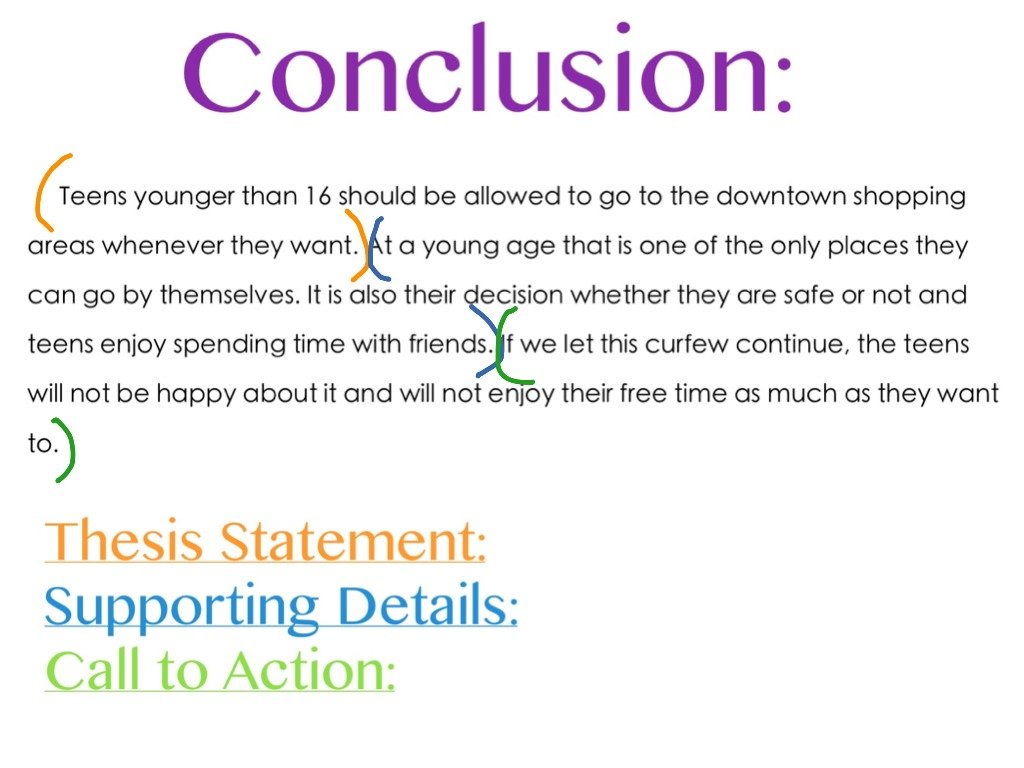
2. Review or reiterate key points of your work
· Think of it this way: in a general sense dissertation states “I will argue that”, while conclusion should emphasize “I have argued that”. The dissertation is meant to establish the direction of essay; the conclusion should make it clear to the reader that writer have kept on track and supported argument · Go through your thesis and search for any instances in which your PhD refers to notable research gaps or a lack of empirical knowledge. A good conclusion for a dissertation should re-visit these major arguments and detail how each of these gaps has been addressed by the findings. 5. Provide Clear and Measurable Recommendations · Conclusions need time and much thinking. So key action two – ALLOW TIME. That’s because writing the conclusion requires two more key actions: 3. STEP AWAY FROM THE RESEARCH. Writing a conclusion requires you to have some distance on the thesis. Rather than seeing the details of each chapter, you have to get a grip on the whole

Discussion vs conclusion
Abstract The concluding chapter of my PhD. In it I discuss the findings of my research into uncoordinated online voice and its implications for unions, who now face a · Conclusions need time and much thinking. So key action two – ALLOW TIME. That’s because writing the conclusion requires two more key actions: 3. STEP AWAY FROM THE RESEARCH. Writing a conclusion requires you to have some distance on the thesis. Rather than seeing the details of each chapter, you have to get a grip on the whole The conclusion provides the opportunity for you to tie all your chapters together, showing how they all connect under the umbrella of your PhD title and your research questions or objectives. Acknowledge the limitations of your research. Most PhD conclusions include a reflection of the limitations of your research. Areas for consideration include

A workingmumscholar's journey through her PhD and beyond
The conclusion provides the opportunity for you to tie all your chapters together, showing how they all connect under the umbrella of your PhD title and your research questions or objectives. Acknowledge the limitations of your research. Most PhD conclusions include a reflection of the limitations of your research. Areas for consideration include · Think of it this way: in a general sense dissertation states “I will argue that”, while conclusion should emphasize “I have argued that”. The dissertation is meant to establish the direction of essay; the conclusion should make it clear to the reader that writer have kept on track and supported argument · Go through your thesis and search for any instances in which your PhD refers to notable research gaps or a lack of empirical knowledge. A good conclusion for a dissertation should re-visit these major arguments and detail how each of these gaps has been addressed by the findings. 5. Provide Clear and Measurable Recommendations

1. Restate the thesis
· Go through your thesis and search for any instances in which your PhD refers to notable research gaps or a lack of empirical knowledge. A good conclusion for a dissertation should re-visit these major arguments and detail how each of these gaps has been addressed by the findings. 5. Provide Clear and Measurable Recommendations · Think of it this way: in a general sense dissertation states “I will argue that”, while conclusion should emphasize “I have argued that”. The dissertation is meant to establish the direction of essay; the conclusion should make it clear to the reader that writer have kept on track and supported argument The conclusion provides the opportunity for you to tie all your chapters together, showing how they all connect under the umbrella of your PhD title and your research questions or objectives. Acknowledge the limitations of your research. Most PhD conclusions include a reflection of the limitations of your research. Areas for consideration include

About pat thomson
· Conclusions need time and much thinking. So key action two – ALLOW TIME. That’s because writing the conclusion requires two more key actions: 3. STEP AWAY FROM THE RESEARCH. Writing a conclusion requires you to have some distance on the thesis. Rather than seeing the details of each chapter, you have to get a grip on the whole · Go through your thesis and search for any instances in which your PhD refers to notable research gaps or a lack of empirical knowledge. A good conclusion for a dissertation should re-visit these major arguments and detail how each of these gaps has been addressed by the findings. 5. Provide Clear and Measurable Recommendations · The conclusion is the very last part of your thesis or dissertation. Its main purposes are to: Clearly state the answer to the main research question; Summarize and reflect on the research; Make recommendations for future work on the topic; Show what new knowledge you have contributed; The conclusion should be concise and engaging
No comments:
Post a Comment